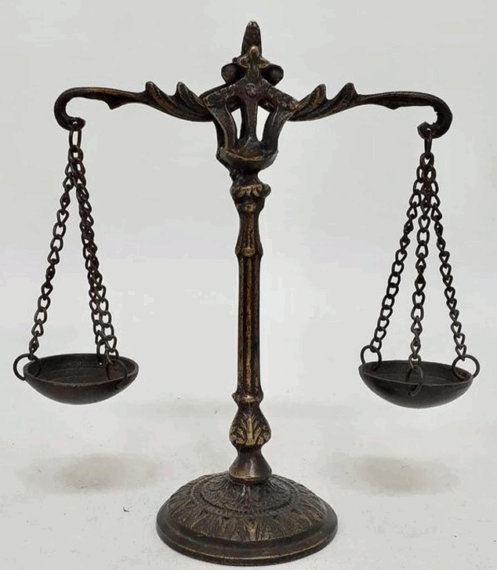The Israelites were chosen by God to be His own people. “I will take you to be my people, and I will be your God, and you shall know that I am the Lord your God, who has brought you out from under the burdens of the Egyptians.” (Exodus 6:7). God made a covenant with them. However, the people were not abiding by the terms of the covenant and God is not happy. So, now in Hosea chapter 4, the Lord accuses the nation of Israel and He is taking them to court.
The Divine Courtroom.
Imagine being summoned to court, not by a human judge, but by God Himself. In Hosea 4:1, we step into a divine courtroom. The Lord is not speaking softly; He is bringing a formal charge against His own people. The verse reads, “Hear the word of the Lord, you Israelites, because the Lord has a charge to bring against you who live in the land: ‘There is no faithfulness, no love, no acknowledgement of God in the land.’” This verse is not only ancient prophecy—it’s a mirror for us today. Let us consider the accusation, the absence, and the application.






The Accusation: “The Lord has a charge to bring”
God is not passive about the spiritual state of His people. He is not going to just let it go and pretend that all is well. Charge in Hebrew suggests a legal dispute—this is a covenant lawsuit. Like a faithful husband confronting an unfaithful bride (a repeated theme in Hosea), God lays out the evidence. This tells us something about God’s character:
God is holy and so He cannot ignore sin. He is completely separate from and opposed to sin. Habakkuk 1:13 declares, “You who are of purer eyes than to see evil and cannot look at wrong.”
God is just. In numerous passages, Scripture affirms the justice of God, declaring Him to be perfectly upright and equitable in all His ways. A concise yet powerful statement appears in Deuteronomy 32:4: “He is the Rock, His work is perfect; all His ways are just. A God of faithfulness without injustice-righteous and upright is He.” As the biblehub.com points it out “This concept of justice in the biblical text conveys not only fair dealing but also the unwavering defense of what is righteous.” Consequently, God responds when His people turn away. Because God is just, He cannot make a rule, establish the penalty, and then not follow through when the rule is broken.
God is faithful, so much so that He still calls the Israelites His people, even while charging them. God’s nature is unchanging. The Bible states, “If we are faithless, he remains faithful—for he cannot deny himself” (2 Timothy 2:13). This verse highlights that God’s faithfulness is not dependent on our actions. He remains true to His character and promises regardless of our faithfulness.
The Absence: What’s Missing in the Land?
As a holy, just, and faithful God He holds the Israelites accountable for their actions. God highlights three missing qualities:
- No Faithfulness- There is no integrity or reliability. People made promises they didn’t intend to keep. Society broke down because trust disappeared. Without faithfulness, families, congregations of the Lord’s church, and nations fall apart.
- No Love- This is covenant love: loyalty, kindness, mercy. God calls for Not just emotion, but action toward others. The people had become self-centred, forgetting compassion and justice. When love disappears, coldness and cruelty take its place.
- No Acknowledgement of God. This isn’t just head knowledge—it’s personal relationship. They lived as if God didn’t exist, though they were His people. Their worship was shallow; their hearts were far from Him. In Amos 5:21, God expresses his disdain for the Israelites’ assemblies and sacrifices, stating, “I hate, I despise your feasts! I cannot stand the stench of your solemn assemblies.” This reflects God’s rejection of ritualistic worship that lacks sincerity and justice. He emphasizes that even though the Israelites offered burnt offerings and grain offerings, God will not accept them, highlighting the importance of a genuine heart in worship. The passage serves as a reminder that true worshippers must and will always seek to worship God in Spirit and in truth, doing what pleases God and not what pleases them. Today, many who claim to be servants of God seem to forget this principle.
The Application: Can We Learn from God’s Message through Hosea?
Hosea’s message is not locked in the past. It is for all true and obedient servants of God. As we seek to do God’s will, we should be opened to take an honest look at how we approach God and His word. As the apostle Paul says in 2 Corinthians 13:5, “Examine yourselves, to see whether you are in the faith…” The faith that was once for all entrusted to God’s holy people (Jude 3), not altered in any way, shape or form.
Why does God bring His case against Israel?
God’s Grievance is a Call to Return. God’s complaint is not meant to condemn without hope—it’s a plea to come back. Hosea’s name means “salvation”. The Bible says that God disciplines those He loves. He doesn’t file the charge to destroy but to redeem. He still calls us to accountability today, just as he did in Hosea’s time. Let’s return to faithfulness. Let’s renew our love for one another. And let’s acknowledge God—not just with lips, but with our lives, our actions. “Actions speak louder than words.”
Toronto ON

